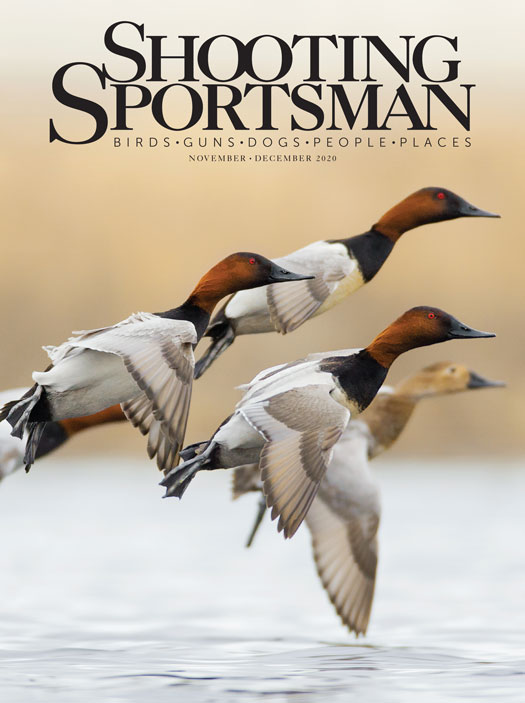It is an honor to be asked to write this column, and I owe it to one of you—a reader who must have seen me at the check station last fall with the spoonbill I thought was a drake mallard—and tattled to my editors. Thank you, dear subscriber! “Expert” makes me feel so knowledgeable . . . so, well, expert. What follows is salient advice from my best-selling book, assuredly nonfiction.
First, look like a duck hunter, because you’ll never kill a duck if it sees you first. Success, therefore, lies in being invisible. The key is total camouflage, including the latest official DU pattern on your sunglasses to prevent sharp-eyed scaup from seeing the whites of your eyes. The worst time to display your shiny necklace of recovered leg bands with pricey handmade calls dangling beneath is in the blind when birds are coming in. The best time is back at the check station where the rookies, impressed by your credentials, will step aside and let you to the head of the line.
Next buy a $2,500 retriever. Labrador retrievers and waterfowl go together like hockey and missing teeth. Unlike some experts, I readily concede that other retriever types—even Chessies—will do the job. The job I am referring to is looking like a duck dog, especially when riding next to you in the front seat of your Expedition. Admittedly, some Labs don’t always have the best minds. A litter of linebred Labs I once came across had the collective intelligence of a chickpea. Of course, you can hunt ducks without a retriever—and many do—but then you will be denied proper partnership and your favorite-duck-organization membership might be canceled.
One other point: Be sure to attach an e-collar (in camouflage pattern) to the dog, even if you don’t know how to use it—the collar, that is.
Also learn the nomenclature. Like all other specialty sports, duck hunters use language—jargon actually—that is often misunderstood. “Stool,” for example, has nothing to do with toiletry; “spread” is no reference to sandwiches or football. Perhaps because serious duck hunters are always sleep-deprived, their brains are less inventive and they readily borrow words from other sources. “Shortstop,” “flare,” “fishhook” and “chop” come to mind along with certain expletives that must go unmentioned here. To learn the language, frequent any truck stop during predawn hours and eavesdrop on the camo crowd drinking black coffee.
Finally, invest in lots of “stuff.” As you might suspect, duck hunting is the most expensive of outdoor pursuits, with the possible exception of world-grand-slam sheep hunting. Many a diehard duck hunter has spent down the 401(k) on trucks, boats, motors, decoys, dogs and guns, not to mention fair- to foul-weather clothing. For you to be accepted into the fraternity, your equipment must appear heavily used—such as having a mud-spattered windshield on the duck truck, chest waders patched with duct tape and a few decoys missing their heads.
If you are not holding your head in your hands by now, then welcome to the world of duck hunting. 





